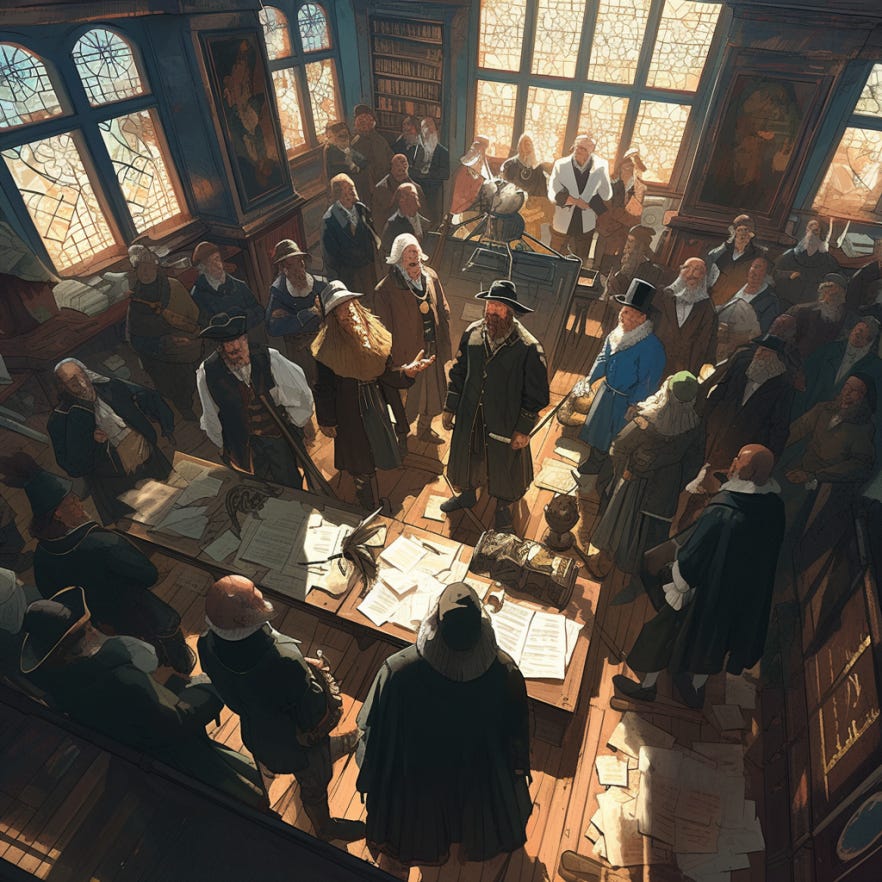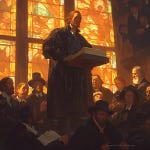In a 1691 colonial courtroom, indigenous leaders and European settlers presenting their cases before a stern judge, arguing over the right to the land by occupancy, documents and maps strewn across a wooden table.
“[T]he Revolution of 1688...is the greatest thing done by the English nation. It established the State upon a contract, and set up the doctrine that a breach of contract forfeited the crown... Parliament gave the crown, and gave it under conditions. Parliament became supreme in administration as well as in legislation. The king became its servant on good behaviour, liable to dismissal for himself or his ministers. All this was not restitution, but inversion. Passive obedience had been the law of England. Conditional obedience and the right of resistance became the law. Authority was limited and regulated and controlled. The Whig theory of government was substituted for the Tory theory on the fundamental points of political science. The great achievement is that this was done without bloodshed, without vengeance, without exclusion of entire parties, with so little definiteness in point of doctrine that it could be accepted, and the consequences could be left to work themselves out.”
~ Lord Acton, ‘The English Revolution’ (c. 1899–1901), quoted in Lectures on Modern History (1906), pp. 231–32
Here is an Excellent Piece by P. Corcoran titled ‘John Locke on the Possession of Land: Native Title vs. the ‘Principle’ of Vacuum domicilium.’ It outlines the philosophical minutia of much of what we cover in today’s entry.
Happy Reading!
Your support is vital for this Mammoth undertaking & endeavour!
If this project interests you, I would greatly appreciate it if you subscribed to a Monthly/Yearly pledge to support my work so that I can provide you, Dear Listeners, with Top-quality material.
Come & join me to explore & study US History as it ought to be: in the words of the peoples of the time themselves!
Alternatively, you can tip here:
Thank You, Dear Listeners, for all your support!















Share this post